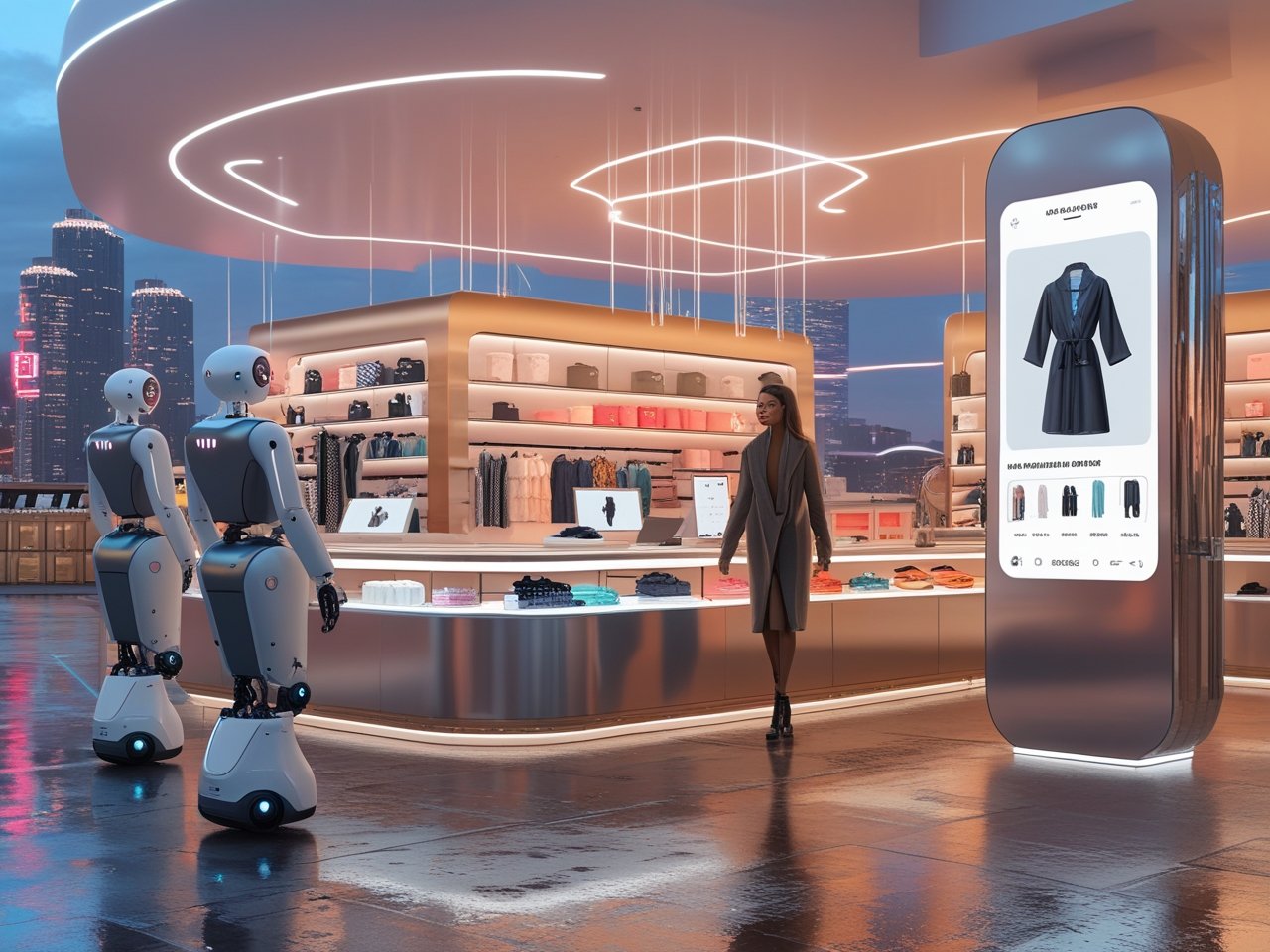The retail industry is undergoing a dramatic transformation, driven through the speedy advancements in Artificial Intelligence. From customized recommendations to wise chatbots, AI is revolutionizing how agencies engage with customers, enhancing their experiences, and using big boom. This article will explore the position of AI in Retail: Enhancing Customer Experiences – Learn how AI is revolutionizing the retail enterprise and improving operational efficiency.
1. Personalized Recommendations
- Understanding Customer Preferences: AI algorithms examine customer statistics, inclusive of buy history, surfing conduct, and demographics, to understand individual possibilities and expect future needs.
- Tailored Product Suggestions: Based on those insights, AI-powered advice engines suggest applicable products, developing customized shopping experiences. This may be visible in movement on structures like Amazon, where clients are presented with “Customers Who Bought This Item Also Bought…” and “Recommended for You” recommendations.
- Increased Customer Engagement: Personalized guidelines beautify customer engagement by means of showcasing products that virtually resonate with individual pursuits. This will increase the probability of purchases and builds more potent purchaser relationships.
2. Intelligent Chatbots
- 24/7 Customer Support: AI-powered chatbots offer immediate customer service, answering regularly requested questions and resolving commonplace troubles around the clock. This improves consumer pleasure and reduces the load on human customer support agents.
- Personalized Interactions: Chatbots can have interaction in personalized conversations, providing tailor-made hints and assistance primarily based on character customer wishes and alternatives.
- Enhanced Customer Service: By automating recurring tasks, chatbots allow human sellers to recognition on extra complex issues and provide customized help to customers.
3. Predictive Analytics
Forecasting Demand: AI algorithms examine historical sales data, marketplace tendencies, and external factors to predict destiny call for. This enables outlets to optimize inventory ranges, save you stockouts, and reduce markdowns.
Identifying Customer Churn: By reading consumer conduct and identifying styles that imply potential churn, retailers can proactively address purchaser concerns and improve retention fees.
Optimizing Marketing Campaigns: Predictive analytics can help shops discover the only advertising channels and goal audiences, maximizing the return on funding for their advertising campaigns.
4. Computer Vision
Enhanced Shopping Experiences: Computer imaginative and prescient enables retailers to offer modern buying experiences, along with digital strive-on for apparel and add-ons, 3-D product visualizations, and in-shop navigation help.
Inventory Management: Computer vision can be used to automate stock control responsibilities, which include monitoring inventory stages, identifying damaged items, and optimizing shelf space.
Fraud Detection: By studying video footage and figuring out suspicious behavior, computer imaginative and prescient can help outlets save you theft and fraud.
Examples of AI Success in Retail
- Amazon: Amazon is a prime example of AI in movement, leveraging machine gaining knowledge of for personalized guidelines, centered advertising, and efficient logistics.
- Netflix: Netflix’s advice engine is famend for its accuracy, predicting viewer alternatives with superb precision and riding purchaser engagement.
- Sephora: Sephora makes use of augmented truth generation, powered by way of AI, to allow clients to actually strive on makeup merchandise, improving the net shopping enjoy.
Benefits of AI Adoption in Retail
- Improved Customer Satisfaction: AI-powered solutions decorate consumer delight by providing personalized reports, improving customer service, and addressing client desires greater efficiently.
- Increased Efficiency and Productivity: AI automates many time-ingesting responsibilities, releasing up employees to cognizance on more strategic initiatives and growing overall efficiency.
- Enhanced Operational Efficiency: AI optimizes inventory management, improves deliver chain performance, and reduces operational costs.
- Competitive Advantage: Retailers that successfully leverage AI gain a massive aggressive advantage via handing over advanced consumer experiences and achieving operational excellence.
Challenges of AI Adoption
Data Privacy and Security: Collecting and making use of patron data raises issues about privacy and safety. Retailers need to make certain that consumer information is amassed and used responsibly and ethically.
Implementation Costs: Implementing AI answers may be steeply-priced, requiring big investments in generation, information infrastructure, and skilled employees.
Integration Challenges: Integrating AI technologies with current systems may be complicated and difficult.
Ethical Considerations: It’s critical to cope with ethical concerns which include bias and equity in AI algorithms to keep away from unintended outcomes.
Tips for Retailers
- Start Small: Begin with a pilot mission to test the effectiveness of AI solutions in a particular vicinity, along with customer service or product guidelines.
- Focus on Customer Data: Collect and examine customer statistics to benefit valuable insights into their alternatives and conduct.
- Invest in AI Talent: Hire professional information scientists and AI engineers to develop and enforce powerful AI answers.
- Prioritize Customer Experience: Focus on how AI can decorate the customer revel in at each touchpoint.
- Continuously Monitor and Improve: Regularly display the overall performance of AI answers and make vital modifications to optimize their effectiveness.31
AI is remodeling the retail landscape, presenting unprecedented opportunities to enhance consumer reviews, force income, and gain a aggressive side. By embracing those cutting-edge technology and addressing the associated demanding situations, shops can liberate the overall potential of AI and thrive within the evolving virtual market.







